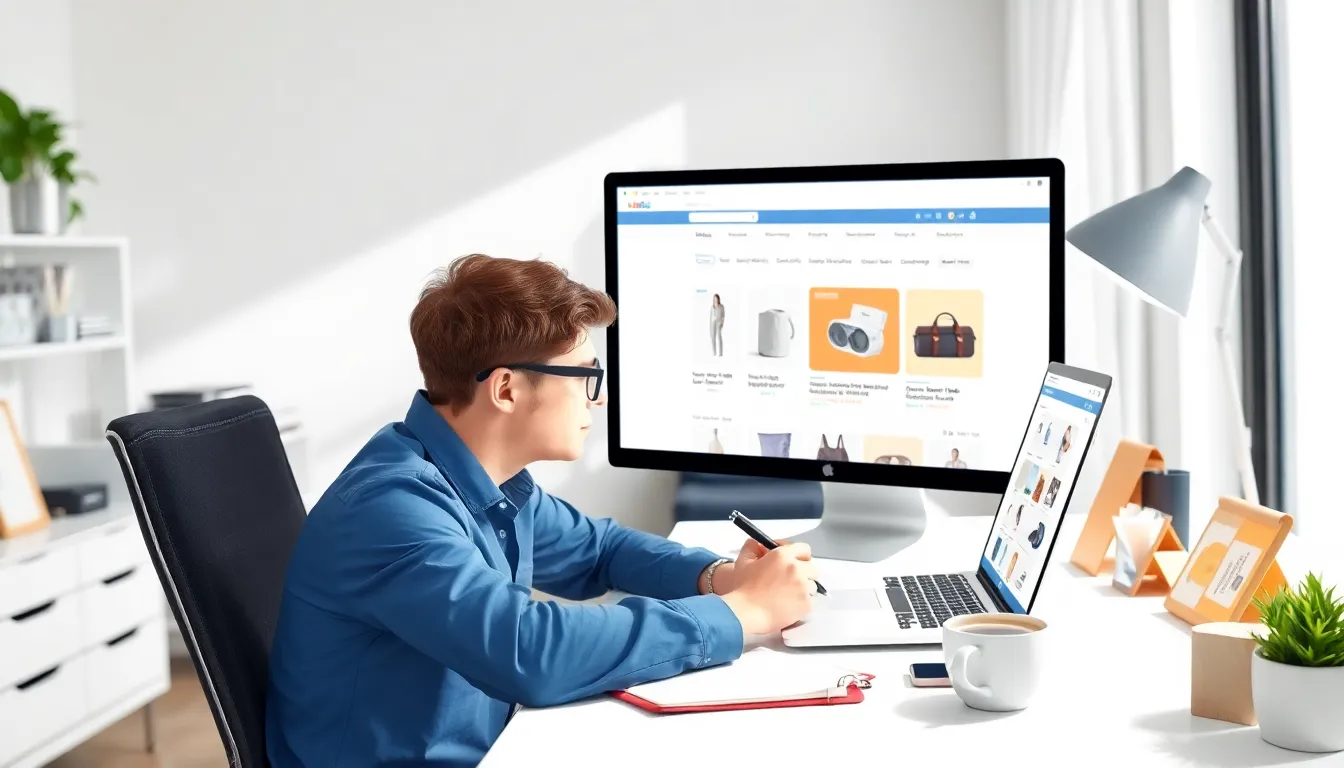In the bustling world of retail, keeping customers happy is no small feat. With countless options at their fingertips, shoppers expect personalized experiences that make them feel like VIPs. Enter CRM for retail—the unsung hero that turns chaos into customer loyalty. Imagine a tool that knows your customers better than they know themselves, tracking their preferences and habits like a loyal sidekick.
But wait, it’s not just about knowing what they like; it’s about turning that knowledge into action. A well-implemented CRM system can transform a simple transaction into a memorable experience, making customers come back for more. So, if retail’s your game and you want to stay ahead of the competition, it’s time to embrace the magic of CRM. After all, who wouldn’t want to turn casual shoppers into lifelong fans?
Table of Contents
ToggleOverview of CRM for Retail
CRM in retail focuses on managing customer interactions and data. It helps businesses enhance relationships and improve customer satisfaction.
Definition and Purpose
Customer Relationship Management refers to systems that manage company interactions with current and prospective customers. These systems enable businesses to organize, automate, and synchronize sales, marketing, customer service, and technical support. The primary purpose is to streamline processes and enhance productivity. Retailers use CRM to gain insights into customer behavior, track preferences, and personalize experiences. By doing so, they can effectively respond to customer needs, ensuring a more tailored shopping experience.
Importance in the Retail Industry
CRM plays a vital role in the retail industry by fostering customer loyalty. Satisfied customers lead to repeat purchases, which are essential for business growth. Improved customer data management allows retailers to target marketing efforts more effectively. Statistics show that companies with a solid CRM strategy achieve higher customer retention rates and increased revenues. CRM systems enable retailers to analyze purchasing trends, which informs inventory decisions and customer outreach. Enhanced communication channels also facilitate quicker responses to customer inquiries, establishing trust and satisfaction.
Key Features of CRM for Retail

CRM systems deliver essential features that optimize retail operations and enhance customer relationships. They enable retailers to efficiently manage customer information and interactions.
Customer Data Management
Customer data management allows retailers to centralize and streamline information about clients. By storing contact details, purchase history, and preferences in one platform, retailers access insights that foster personalized marketing. Effective data organization improves targeted promotions and enhances overall customer experiences. Additionally, real-time updates ensure data accuracy, which aids in building trust and rapport with customers.
Sales and Marketing Automation
Sales and marketing automation simplifies routine tasks for retailers. Automated workflows can handle email campaigns, manage inventory alerts, and track customer interactions. These features save time, allowing staff to focus on strategic initiatives. With personalized messages aligned to customer behaviors, retailers experience higher engagement levels. Utilizing CRM tools for sales processes ensures consistent follow-ups, converts leads, and enhances revenue opportunities.
Analytics and Reporting Tools
Analytics and reporting tools provide actionable insights into customer behavior and sales patterns. Retailers can evaluate data trends to inform inventory decisions and marketing strategies. Detailed reports reveal key performance indicators that shed light on successful campaigns and areas needing improvement. With these insights, retailers make informed adjustments in real time, maximizing efficiency and profitability while strengthening customer relationships.
Benefits of Implementing CRM for Retail
Implementing a CRM system offers several advantages for retail businesses. Retailers experience improved customer engagement, fostering stronger relationships.
Improved Customer Relationships
Building strong customer relationships becomes easier with CRM systems. These tools facilitate personalized communication based on individual preferences, enhancing customer satisfaction. Feedback from customers can be effectively tracked and addressed, ensuring that their needs are met. Increased responsiveness to inquiries leads to trust and loyalty, allowing retailers to turn one-time buyers into repeat customers. By centralizing customer data, retail businesses gain a comprehensive view of interactions, allowing for targeted outreach and tailored marketing strategies.
Increased Sales Performance
Sales performance sees a notable boost through effective CRM implementation. Automation tools streamline sales processes, freeing up time for sales representatives to focus on high-value interactions. In addition, CRM systems provide insights into customer buying patterns, helping identify opportunities for upselling or cross-selling products. Retailers can track sales leads and conversions, optimizing sales strategies to meet specific customer needs. Enhanced reporting features lead to data-driven decisions, improving overall sales efficiency and increasing revenue.
Enhanced Customer Insights
CRM systems deliver profound insights into customer behavior, enhancing marketing strategies. Analyzing purchasing trends helps retailers understand customer preferences and adjust offerings accordingly. Detailed reporting features generate actionable data that drive targeted marketing campaigns, increasing effectiveness. Retailers gain the ability to segment customers based on various factors, enabling personalized promotions and communication. Ultimately, this enhanced understanding of customers leads to improved retention rates and sustainable growth.
Challenges in Adopting CRM for Retail
Adopting CRM in retail presents various challenges that businesses must navigate. Integration with existing systems poses a significant obstacle. Retailers often rely on established platforms for operations. Ensuring seamless compatibility with new CRM software requires careful planning and execution. Data migration involves transferring information without loss. Overlapping functionalities may lead to confusion among employees. Thus, retailers must conduct thorough assessments to avoid disruption.
Employee training and adoption represent another hurdle. The effectiveness of a CRM system hinges on staff proficiency. Employees need adequate training to utilize its features fully. They may resist change if they’re unfamiliar with the new processes. Comprehensive training programs help mitigate this resistance. Regular follow-ups and support foster a culture of continuous learning. Encouraging buy-in from employees ensures they embrace the CRM system, leading to enhanced customer interactions and improved retail performance.
Adopting a CRM system is essential for retailers aiming to thrive in today’s competitive landscape. By effectively managing customer interactions and data, retailers can enhance customer satisfaction and loyalty. The ability to personalize marketing efforts and streamline processes leads to a more engaging shopping experience.
With the right CRM tools, retailers can gain valuable insights into customer behavior and preferences. This not only drives repeat purchases but also fosters long-term relationships. While challenges in integration and training exist, the benefits of CRM far outweigh the hurdles. Embracing CRM ultimately transforms retail operations and positions businesses for sustainable growth in a rapidly evolving market.







